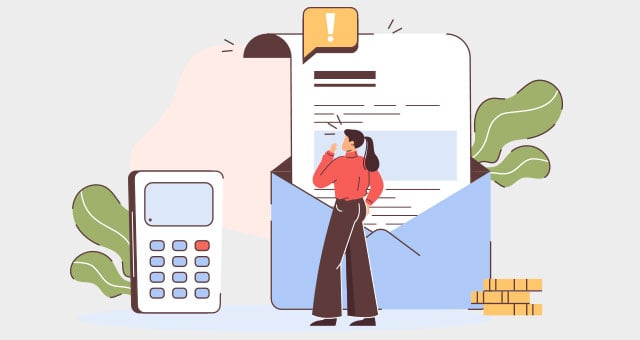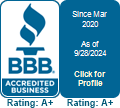
Common Pitfalls to Avoid When Tackling Debt
Managing debt is simple—if it were, most people would be debt-free. Unfortunately, that is far from reality. As of the first quarter of 2024, total household debt in the U.S. reached a staggering $17.987 trillion, with the average consumer carrying $104,215.
The problem is not that debt exists—it is how quickly it can spiral out of control without focus, discipline, and a solid plan.Even with the best intentions, common mistakes can stall your progress, leaving you stuck or falling deeper into financial hardship.
In this blog, we will explore the key mistakes to avoid as you work to regain control over your finances and pave the way to a debt-free future.
1. Skipping the Emergency Fund
One common misstep is neglecting to build an emergency fund. It is logical to allocate every dollar toward debt repayment, but having no savings for unexpected expenses, such as medical bills or car repairs, can lead to more debt. Set aside at least $500 to $1,000 as a financial cushion before aggressively tackling your debt.
Key Takeaway: Build an emergency fund of $500–$1,000 to handle unexpected expenses without accumulating more debt.
2. Paying Without a Plan
Another frequent error is paying off debt without a clear plan. Random payments can lead to frustration and inefficiency. Strategies like the debt snowball method, which focuses on clearing smaller debts first, or the debt avalanche method, which prioritizes high-interest debts, can make repayment more structured and motivating. Additionally, mapping out your goals and setting realistic timelines can bring clarity and keep you on track.
Key Takeaway: To stay organized and motivated,choose a repayment strategy, such as the snowball or avalanche method.
3. Only Making Minimum Payments
Only making minimum payments can be a costly mistake. While this keeps your account in good standing, it barely reduces the principal amount, allowing interest to accumulate over time. Paying more than the minimum whenever possible can significantly accelerate your progress.
Key Takeaway: Pay more than the minimum to reduce your debt faster and save on interest.
4. Overlooking High-Interest Debts
Failing to prioritize high-interest debts is another issue that can hinder debt repayment. High-interest debts, such as credit cards,should be addressed promptly to minimize the amount paid over time.
Key Takeaway: Address high-interest debts first to minimize the total amount paid over time.
5. Taking on New Debt
Avoid using credit cards or taking out new loans while trying to pay off existing debt. Adding new debt can undo your progress and make it harder to achieve financial freedom.
Key Takeaway: Avoid new debt until your current financial situation is under control.
6. Ignoring Budgeting
A budget is essential for tracking income, expenses, and debt payments. Without a budget, it’s easy to overspend and miss opportunities to allocate funds toward debt repayment. Create a realistic budget that accounts for both fixed and variable expenses.
Key Takeaway: Use a budget to track income, expenses, and payments to stay on top of your finances.
7. Never Changing Your Spending Habits
We are creatures of habit. We shop in the same stores, buy the same brands, and even eat in the same restaurants because it makes us comfortable. What you do not realize is it could be costing you more than you can handle financially. Changing your spending habits is essential to get out of and prevent future debt.
Look at your spending over the month. Where are you spending the most money?
- Are you buying coffee every morning?
- Do you get takeout for lunch and dinner regularly?
- Do you buy more expensive brands because you haven’t considered alternatives?
- Do you regularly spend a lot of money on non-essential shopping?
- Do you have lots of subscriptions you do not need?
You can eliminate a lot of extra spending by changing small routines, finding substitutes for more expensive products, and canceling old subscriptions.
Key Takeaway: Small changes in spending habits can lead to savings and help prevent future debt.
8. Not Consolidating Your Debt
If you have multiple debts to pay monthly, you could be spending more money than you should in interest. Debt consolidation is a common way to refinance your debt. It involves paying off high-interest credit card debt with a new lower-interest credit card or loan. Additionally, researching lenders and understanding terms beforehand can ensure you choose the best consolidation option for your needs.
Debt consolidation has the added benefit of simplifying your finances, as it reduces the payments you need to manage monthly. However, it is essential to be mindful of the potential downsides, such as fees, longer repayment terms, or risking collateral if using a secured loan. Carefully evaluate your financial situation and goals before committing to this strategy.
Key Takeaway: Debt consolidation can simplify your payments and reduce interest costs over time, but be aware of potential risks.
9. Seek Professional Help If Needed
Seeking professional help when overwhelmed by debt is an option many people ignore. Credit counselors and debt relief professionals can provide tailored advice and strategies to help regain control of your finances.
Key Takeaway: Professional help can provide customized solutions when debt becomes overwhelming.
10. Prioritize Mental Health
Finally, neglecting your mental health during the debt repayment journey can be detrimental. Financial stress can take a toll, so it is crucial to practice self-care and seek support when needed. Look into stress management techniques like mindfulness or yoga, as they help maintain emotional balance. Also, regular exercise, meditation, or even taking short breaks during the day can rejuvenate your mindset and keep you motivated.
It is equally important to recognize when professional help, such as therapy or counseling, might be beneficial to manage overwhelming stress or anxiety. Taking care of your mental health improves your emotional well-being and enhances your ability to make rational financial decisions.
Key Takeaway: Prioritize your mental health to stay focused and resilient during your debt repayment journey.
Final Thoughts
Managing debt is challenging, but avoiding common pitfalls can make the journey smoother. Celebrate your small victories along the way and stay committed to your goals.Every step forward brings you closer to your goal, and with persistence, financial freedom is within reach.
If you are struggling with excessive debt, our experienced debt relief experts are here to guide you every step of the way. Do not hesitate to reach out for a personalized solution.


